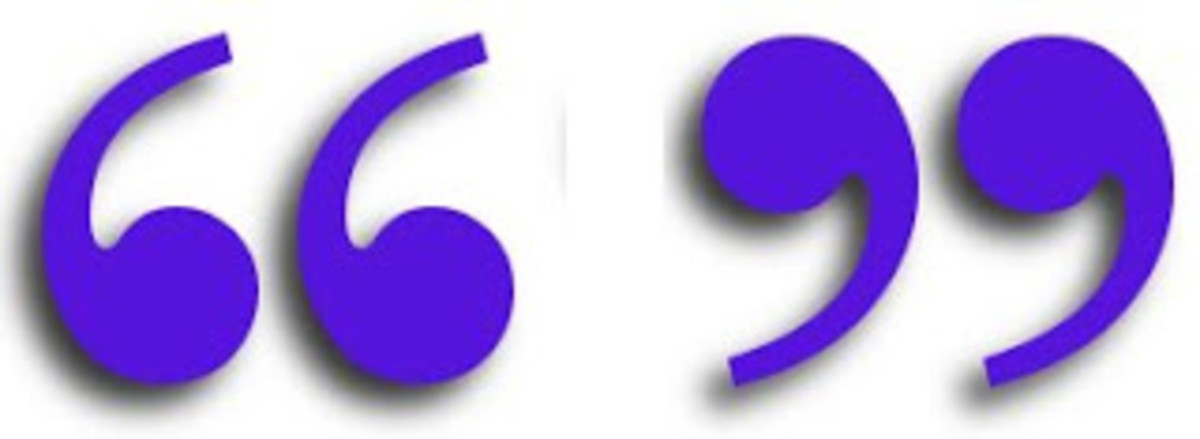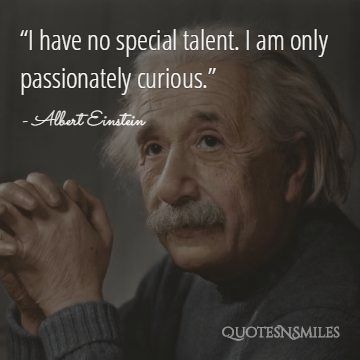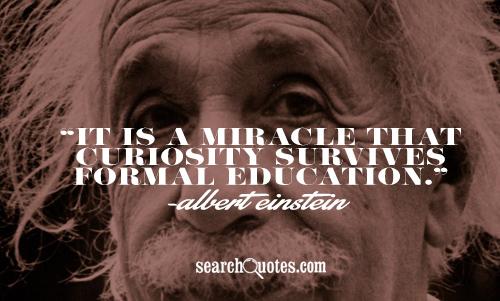
“The real voyage of discovery consists not in seeking new lands but in having new eyes.” Marcel Proust
The benefits of being curiousHow can curiosity benefit us? What is the value of nurturing this strength? By being curious, you will be:
Source: Here.  Strengths can be overused or unused
Key research
Psychological Impacts of Curiosity
Ted Talk: The Value of Curiosity |
Put into action the recommendations from the Authentic Happiness Coaching Newsletter on Curiosity
“During those times when you are feeling bored or unstimulated (e.g., while waiting in line at the grocery store), focus your attention on something that ordinarily might not engage your interest. For example, if you are at the grocery store, really notice how various customers interact with the checkout clerk. Are they making eye contact or averting their gaze? Do they make small talk? Do they offer to bag their own groceries? Notice how much effort you need to expend to focus your attention. Is it worth it? Is there a trade off between being bored (but with no demands placed on your psychic energy) and being interested?”
Tayyab Rashid and Afroze Anjum offer 340 Ways to Use VIA Character Strengths including these four for Curiosity:
- Expand your knowledge in an area of interest through books, journals, magazines, TV, radio, or internet, for half an hour, three times a week. Speak to an expert in this area to get recommendations for good resources.
- Attend a function/lecture/colloquium of a culture that differs from yours. Consider how similarities and differences between this culture and your own might arise, without being judgmental toward either culture.
- Connect with a person of a different culture and spend at least an hour, twice a month, learning about his/her culture. Be inquisitive, non-judgmental, and open about your own culture.
- Try things that challenge your existing knowledge and skills. Give a presentation or seminar on a topic that interests you, or simply explain it in detail to friends who are unfamiliar with it.
“I have no special talents,” said Albert Einstein. “I am only passionately curious.”
 Todd Kashden is the acknowledged expert on Curiosity following the publishing of his book by the same name. Arianna Huffington says “Curious? is one of those rare books that can make you rethink how you see the world.” Distinguished Professor and Author of Why Good Things Happen to Good People, Dr. Stephen Post, says “Combining well-designed self-help with state-of-the-art positive psychology and profoundly inspiring stories, this is the perfect book to read when you are having second thoughts about challenging yourself to explore that next step in life!”
Todd Kashden is the acknowledged expert on Curiosity following the publishing of his book by the same name. Arianna Huffington says “Curious? is one of those rare books that can make you rethink how you see the world.” Distinguished Professor and Author of Why Good Things Happen to Good People, Dr. Stephen Post, says “Combining well-designed self-help with state-of-the-art positive psychology and profoundly inspiring stories, this is the perfect book to read when you are having second thoughts about challenging yourself to explore that next step in life!”
Here he speaks with VIA about building Curiosity.
Todd Kashden through his reserach defined the 5 dimensions of curiosity:
1. Joyous Exploration – this is the prototype of curiosity – the recognition and desire to seek out new knowledge and information, and the subsequent joy of learning and growing.
2. Deprivation Sensitivity – this dimension has a distinct emotional tone, with anxiety and tension being more prominent than joy – pondering abstract or complex ideas, trying to solve problems, and seeking to reduce gaps in knowledge.
3. Stress Tolerance – this dimension is about the willingness to embrace the doubt, confusion, anxiety, and other forms of distress that arise from exploring new, unexpected, complex, mysterious, or obscure events.
4. Social Curiosity – wanting to know what other people are thinking and doing by observing, talking, or listening in to conversations.
5. Thrill Seeking – the willingness to take physical, social, and financial risks to acquire varied, complex, and intense experiences.
And upon treating these dimensions as part of a single profile, he found evidence for 4 types of curious people:
1. The Fascinated – high on all dimensions of curiosity, particularly Joyous Exploration
2. Problem Solvers – high on Deprivation Sensitivity, medium on other dimensions
3. Empathizers – high on Social Curiosity, medium on other dimensions
4. Avoiders – low on all dimensions, particularly Stress Tolerance
Curious: The Desire to Know and Why Your Future Depends On It
“I would never have guessed that so slim a volume could so richly pique my curiosity about curiosity. Stuffed with facts, ideas, questions, quotes, musings, findings, puzzles, mysteries, and stories, this is a book—as Montaigne said of travel—with which to ‘rub and polish’ one’s brain. It’s the most delightful thing I’ve read about the mind in quite some time.”
David Dobbs, features writer for the New York Times
- Authentic Happiness Coaching Newsletters: Curious About Curiosity?
Professor Todd Kashdan ‘The Curiosity Advantage’ at Young Minds 2013
Film Maker Brian Grazer on Curiosity Conversations
Conduct a Curiosity Conversation in 6 Easy Steps
1. Think of every meeting as the best date the person you’re talking to will ever have.
2. Do your research.
3. Add empathy. Think, “What is this person going through in his or her life at this moment? What matters to him or her?”
4. Never ask for anything. It poisons the purity of the conversation.
5. If you can’t resist having an agenda, then say, “I have an agenda.” Otherwise, you undermine the process.
6. Pay attention. Always have smart, thoughtful, interested eyes.
Source: Curiosity Thrills This Cat and more here
Tune into this fantastic youtube channel “Today I Found Out…”

Podcasts to feed your curiosity:
Tell me Something I don’t know:
Freakonomics Radio Live! is live journalism wrapped in a game-show package where we play a game called “Tell Me Something I Don’t Know.” Hosted by Stephen J. Dubner, it has the same kind of factual, inquisitive journalism that has been a hallmark of Freakonomics Radio, but it’s disguised in the most entertaining, unexpected, and occasionally ridiculous conversation you’re likely to hear.
Contestants come on stage before a live audience and try to wow Stephen and his guest co-host with a fascinating fact — a historical wrinkle, a new line of research — anything, really, as long as it’s interesting, useful and true (or at least true-ish). There’s a real-time human fact-checker on hand to filter out the bull. And the audience gets to vote for a winner!
Unseeable forces control human behavior and shape our ideas, beliefs, and assumptions. Invisibilia—Latin for invisible things—fuses narrative storytelling with science that will make you see your own life differently.
How I Built This by NPR
How I Built This is our top pick because it shares the incredible stories behind some of the world’s most successful companies. It’s an inspiring podcast for innovators, entrepreneurs, and idealists like us at Eight.
TED Radio Hour:
Following on from the well-known ‘TED Talks’, NPR host, Guy Raz (same Guy as above), takes a deeper look into some of the topics that come up. He chats with some of the key presenters from the talks, and others, to get a more detailed understanding, talking about their experiences and questions that have arisen since their talk. It’s another interesting one and isn’t just focused on technology and the like, but society and even the effect of certain emotions.
- Podcast: “The Curiosity Hour Podcast” Episode: “Unleashing Your Inner Curiosity” – This episode delves into the importance of curiosity in personal growth and features discussions with experts and individuals who have embraced curiosity to fuel their lives.
- Curiosity – “Stay Curious” (The Knowledge Project)
- “Stay Curious” – The Knowledge Project with Shane Parrish Summary: Shane Parrish discusses the importance of cultivating curiosity as a key driver of learning and growth. URL: https://fs.blog/knowledge-project/stay-curious/
- “Born Curious” – Hidden Brain (NPR) Summary: This episode examines the science behind curiosity and why humans have an innate drive to explore and understand. URL: https://www.npr.org/2019/04/15/712634304/born-curious
- “How Being Curious Could Improve Your Life” – Ten Percent Happier with Dan Harris Summary: Dan Harris interviews psychologist Todd Kashdan on the benefits of curiosity for well-being. URL: https://www.tenpercent.com/podcast-episode/todd-kashdan-curiosity
- “Cultivating Curiosity” – The Science of Happiness (UC Berkeley) Summary: Explores research on how curiosity encourages open-mindedness and ways to become more inquisitive. URL: https://ggsc.berkeley.edu/podcasts/story/cultivating_curiosity
- “The Power of Curiosity” – Unlocking Us with Brené Brown Summary: Brené Brown discusses the role of curiosity in fostering connections and squashing judgment. URL: https://brenebrown.com/podcast/the-power-of-curiosity/
- Guided mediation on Curiosity from Insight Timer
- Another guided mediation on Curiosity from Insight Timer
- Another guided mediation on Curiosity from Insight Timer
-
A 12-Minute Loving-Kindness Practice to Cultivate Curiosity
-
A 12-Minute Meditation to Approach the World With a “Don’t-Know Mind”
Learn more:
- The Science of Curiosity
-
How to Cultivate Curiosity in Your Mindfulness Practice
-
Curiosity and mindfulness – Mindfulness Meditation

Quotations on Curiosity


The cure for boredom is curiosity. There is no cure for curiosity.
The important thing is not to stop questioning. Curiosity has its own reason for existing. One cannot help but be in awe when he contemplates the mysteries of eternity, of life, of the marvellous structure of reality.
I think, at a child’s birth, if a mother could ask a fairy godmother to endow it with the most useful gift, that gift would be curiosity.
- Eleanor Roosevelt
Curiosity is one of the permanent and certain characteristics of a vigorous mind.
- Samuel Johnson


 Curiosity [interest, novelty-seeking, openness to experience]: Taking an interest in ongoing experience for its own sake; finding subjects and topics fascinating; exploring and discovering
Curiosity [interest, novelty-seeking, openness to experience]: Taking an interest in ongoing experience for its own sake; finding subjects and topics fascinating; exploring and discovering



